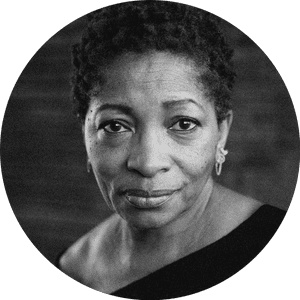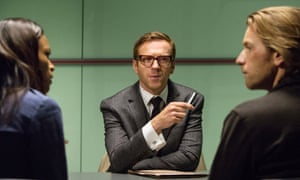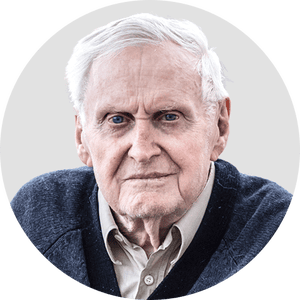 |
| John le Carré Ilustración de Triunfo Arciniegas |
John le Carré remembered by writers and friends: 'He always had a naughty twinkle in the eye'
Margaret Atwood, John Banville, Tom Stoppard and more pay tribute to a master who transcended the limits of spy fiction
John Banville, Tom Stoppard, Charlotte Philby, Margaret Atwood, Philippe Sands, Susanna White, Hossein Amini, Bonnie Greer, Ian Rankin, Kit de Waal, Holly Watt and Adrian McKinty
Mon 14 Dec 2020 15.54 GMT
John Banville, author
We met for lunch one rainy day at the end of last summer, in an excellent but eerily deserted restaurant in Hampstead village. He was already there when I arrived, seated foursquare at a small table with his back to the wall and his eyes on the door. Inevitably it occurred to me to wonder how many empty restaurants, bars and cafes he had sat in like this, waiting and watching, in the days when he was a spy. He always played down the significance of those days, speaking of them with wry amusement, and giving the impression that in the world of espionage he had been little more than a pen-pusher. I chose to believe him.
That Hampstead meeting wasn’t our last – later he came to Dublin and Cork to investigate his father’s Irish roots, since he was thinking of giving up on Brexitland for Ireland – but it’s the one I recall most vividly. He was 88, yet he had the vigour and alertness of a far younger man. When I heard the news of his death, immediately a picture came to me of him striding along in the rain that day, in his George Smiley overcoat, his great square handsome head cleaving the air like the stem of a battle cruiser. He was a big man, in so many ways.
His biographer Adam Sisman quoted him saying that “people who have had unhappy childhoods are pretty good at inventing themselves”. In conversation, he returned again and again to his own childhood, which he looked back on with a kind of wonderment, amazed at the fact of having survived it; survived, and thrived. His father, Ronnie, had been a conman and chancer on an epic scale – a person representing a London hospital turned up at his funeral to fetch his head, claiming Ronnie had long ago sold it to the hospital for research purposes – and his mother abandoned him and his brother when they were schoolboys, never to return.
Was he his own invention? Well, aren’t we all? He seemed to me thoroughly authentic, the real thing, a man who fitted exactly the space the world allotted him. He was an old-fashioned patriot, with none of the bombast that might imply. He loved his country, but was disgusted by the upsurge of Little Englandism that followed the Brexit referendum. He was serious in the thought of moving to Ireland, but had he settled here, he would have been horribly homesick.
As a writer he transcended mere genre, showing that works of art could be made out of the tired trappings of the espionage novel – The Spy Who Came in from the Cold is one of the finest works of fiction of the 20th century. Along with Iris Murdoch, he sustained, and strengthened, the tradition of the mainstream English novel of manners; as a deviser of plots and a teller of stories, he was at the same level of greatness as Robert Louis Stevenson. His books will live as long as people continue to read. Samuel Beckett, asked to name what he considered to be his friend James Joyce’s greatest quality answered: “Probity.” Many of us would say the same of John le Carré, and doubly so of David Cornwell.
Tom Stoppard, playwright
He was David to his friends, and, enormous though that company was, one couldn’t help taking pride in belonging to it. The rewards were several. His handwriting on an envelope gazumped all other business, and to be at his table was an entertainment, an education and a catch-up on the news behind the news. As a story-teller, he did the police in different voices. And then there were the books; the prose, the perfect epithets, the throw-away gems. We all delighted in Smiley fumbling at his shirt front to polish his glasses with the end of his tie, forgetting that he was in evening dress. It’s so many years since I read it but I still remember the little shock of pleasure I felt.
He was le Carré to me until we became friends over the film of The Russia House 30 years ago, one of the books that best showed off the alloy of radical anger and high romanticism that went into the building of the precision instrument which is a le Carré novel in its prime. Recently he told me he had found his way to his next book. There was an obvious joy and also relief in his voice. Maybe that one is lost now, but the blow of losing David is immense and personal.
Charlotte Philby, author
My father’s hardback copy of The Little Drummer Girl stood for all of my childhood as the only novel on a shelf in our living room, otherwise reserved for more “serious” books. (Namely a dozen or so volumes of the OED.) As such, it took me a while to read it, once I found myself clawing for clues about the life of my grandfather, the double agent Kim Philby, about whom Le Carré was publicly scathing. Years later, I can still smell the pages as I cracked it open, in my late teens, and found myself immersed, for the first time, in one of his quietly devastating worlds. Over the years, I pored over every one of his books, drinking in his extraordinary observations on the political and the personal, and how these intersect. I’m so grateful to him for stories that helped me to understand the world that my grandfather inhabited, in dark grey technicolour. As an author, I’m always inspired by his ability to combine forensic thinking, a deftly crafted plot and a clarity about what it is to be human and flawed – and I am wholly resigned to the fact that anything I write will never touch it.
Margaret Atwood, author
John le Carré was a towering writer whose books are a teeming Dickensian guide to the bleak Machiavellian underworld beneath the international power struggles of the last 70 years. Like so many, I was first gripped by The Spy Who Came in from the Cold, then captivated by the Smiley novels. Orwell, Greene, Le Carré – how essential they are, especially now, and how fatuous they render the division into “literary fiction” and “genre”. Thank you, dear John, from one of your highly admiring Constant Readers.
Philippe Sands, lawyer and author
We first met at the local pub, bonded over the mendacities of the “war on terror” and Iraq, and ended up giving a talk at a local school in the company of a former Guantánamo detainee. I learned that his attention to detail, and capacity for research, was beyond extraordinary; I didn’t hesitate when he asked if I might review a manuscript to check if the lawyers were “right”. (Dress, lingo, style, etc.) It became a regular thing: the doorbell; him, standing on the porch; hundreds of pages in a cardboard box; “usual procedure?” What a joy to receive the unvarnished words, double-spaced, printed only on one side, and the conversations that followed. (Unbelievably, in the early years my wife gave the drafts to our kids as scrap paper.) “No lawyer would refer to her client as ‘heart’,” I might scribble, or some such thing, polite in the early days, firmer as the years passed, then deliver the relevant pages back to their house around the corner. Occasionally there would be a debate, sometimes pretty spirited. He’d usually take a suggestion, but not always. “Heart” never did make it into that book, thankfully, although he insisted for ever that he did once hear a lawyer use the expression, “truly, a term of genuine endearment”.
Over the years, the act of reading sowed the magic of his approach to structure and text (the dialogue!) into my soul. He was warm, funny, hugely generous, always a naughty twinkle in the eye. He was a student of the human condition, and forever a teacher. (“The thing you need to understand about Eton,” he told me not so long ago, apropos Mr Johnson and the place where he himself once taught, “is that the pupils are taught to win, not govern.”) Writing this, I recall the laughter, the secret rhubarb crumbles and custard shared despite the ordinances of our wives, and the sheer happiness of each encounter with Le Carré and his wife Jane, not least the impromptus on the streets of Hampstead.
Susanna White, director of Our Kind of Traitor
As you might expect, David Cornwell was a master of disguise, different things to different people indifferent places.
We shot Our Kind of Traitor in five countries. One section takes place at the Bellevue Palace Hotel in Bern. Dressed, as he did, in monogrammed shirts, that five star luxury seemed like his natural habitat, but as we walked the cobbled streets of Bern together, he shared stories of how he first came there at the age of 16 and talked his way into a place at the university, of how he supported himself washing elephants for a circus, how he slipped into the back of a lecture room to hear Herman Hesse give a reading. We had drinks in the bar at the Bellevue Palace, where he said he used to gather intelligence in the post-war years and attended tea dances in the afternoons.
But he seemed happiest taking us for fondue at the formica tables at a little joint across the street which had barely altered since he discovered it in the early 1950s, advising we should all drink Kirsch, as well as the wine that was on the table, to aid digestion. Here he switched not just into German but into the fiendishly difficult Swiss German of the region and with that in mind we cooked up the idea of how he’d make his cameo appearance in my film as a Swiss German guard at the Einstein museum. With a typical attention to detail, he was very specific about the shoes he should wear – he felt his character had bad feet and was a bit miserable because of it. The waitress serving the fondue launched into a big speech about how marvellous it must be to be British – in Switzerland one had to conform, in Britain you could be anyone you wanted. The truth was that David Cornwell, or John le Carré or whatever name he went under that day, could be anyone he wanted anywhere in the world.
Hossein Amini, screenwriter of Our Kind of Traitor
The three days I spent in Cornwall with David in 2010 going over my first draft of Our Kind of Traitor were some of the most memorable, and enjoyable, of my whole career.
He was such a film buff that he was incredibly open to changes being made to his novel. He’d act out all the dialogue with fantastic accents and voices. It’s the only time I’ve really worked closely with a novelist on an adaptation, but I think he was like that with all the projects he worked on.
We’d work in the morning and then go for walks on the cliffs in the afternoon. He was incredibly welcoming as a host, and very kind and encouraging as a collaborator. He didn’t impose status on you, but would treat you as an equal. David was so comfortable with himself he didn’t need to put you down to make himself feel big.
He had a very young mind, even well into his 80s. He’d always be asking questions and interested in other people, and I think you can see that in the way he’d reinvent his themes and tell new stories.
I’ve only met three or four geniuses in my lifetime; people where you think, oh, there’s a reason you’ve accomplished what you have. David was certainly one of them.
John Boorman, director
He lived at the very end of Lands End, as far away from London as you can get without falling into the sea. I went to see him. I was to make The Tailor of Panama for Warner Brothers. He and I were part of the diminishing generation who were children during the second world war. He was just one year older than I. He had moved on and was in the middle of a new book. Everything he knew about Panama was in the book. He gave me some contacts and suggested that I write the script.
Although he did not wish to speak about Panama, he was anxious to talk about everything else with the urgency of a recluse. We talked about the hopes we had of the reforming government of Atlee that founded the secondary modern schools which for the first time taught all children about art and music, resulting in the explosion of painting and music of the 60s. We noted that none of those musicians and painters came out of Eton. A discussion about the class system which he believed was pervasive and prevented England from developing. It all stemmed down from the absurd monarchy.
We met on a number of occasions and I was always impressed by his high intelligence. When he was in the middle of a book, it was as though it had to be written or it would burst inside him.
Bonnie Greer, playwright

My late father, Ben, was an autodidact, having grown up in rural Mississippi during the Depression, where education was segregated and brief for African American kids. He bought the Reader’s Digest to find out what books he should be reading and one of them was The Spy Who Came in from the Cold. This was the 1960s and I, like most Black kids at the time, was growing up not only in the civil rights movement and the beginning of its splintering, but at a time when US intervention was blatant and the norm. And we felt it was wrong; we knew everything was not as clear-cut as it was shown to us. When I read Le Carré, I came to see the ambiguity of life itself, its murkiness. I saw a guy who chose love and to take himself out of dishonour and lies. I have never forgotten the end of that novel. It taught me that life was complex and that even your country, and your friends, can be wrong.
Ian Rankin, author
John le Carré brought style and substance to the spy novel, detailing a world filled with morally compromised characters. He was more akin to Graham Greene than Ian Fleming, writing books where treachery and betrayal were never far away, and psychological drama trumped physical action. As the world changed and the cold war mutated, Le Carré focused on new threats and enemies who seemed not wholly unlike their predecessors. For me, A Perfect Spy is his greatest novel because it brings us closer to understanding the author’s own life, his father’s adventures as a conman engendering a lifelong interest in deceit and duplicity. Le Carré was our great chronicler of the geopolitical made personal. He shaped our understanding of a shadow world, one we are not supposed to know exists.
Kit de Waal, author
“On the day his destiny returned to claim him …” is the first Le Carré sentence I read, in Absolute Friends. I was trying to be a writer and I was daunted by it: so much “set up” in eight words, so much anticipation. I’ve read almost all of his novels now and remain in awe, more so after all these years and all those thousands of words. It’s not just that he leads you around with a trail of almost imperceptible breadcrumbs into worlds you never knew existed which feel utterly real and true, or even just the word-on-word craftsmanship and his mastery of the genre – it’s the characters: real, damaged, broken, the woolly patriotism and grey morals, addled by drink and ambition, lonely, heartsore. Not one word of excessive emotion in his books, and yet by the end, you’re wrung out by them, wiser, more understanding of the human condition. What a loss.
Holly Watt, author
When I was writing To the Lions, I struggled to come up with a title. My editor had one piece of advice: “Look at John le Carré’s titles and see how he does it. He’s the best.” Tinker Tailor Soldier Spy. The Little Drummer Girl. The Spy Who Came in from the Cold. The titles alone show his extraordinary way with words, but the novels themselves saw Le Carré display not only his sweeping knowledge of geopolitics, but also his remarkable understanding of humanity. He was a man of great compassion, who witnessed the best and very worst of people, and alchemised that insight into truly majestic novels. The world changed beyond recognition during his 89 years, but he changed with it, adapting seamlessly from the espionage of Call for the Dead to the drug-dealing chaos of The Night Manager. In Agent Running in the Field, published just over a year ago, he savaged Brexit and a “fucking Etonian narcissistic elitist”. For writers in the 21st century, my editor’s words will continue to resonate, but – sadly – with a slightly different phrasing: “He was the best.”
Adrian McKinty, author
I came to Le Carré in my late teens through A Murder of Quality, which has George Smiley working as a kind of private detective. I naively asked the Belfast central librarian if there were any more George Smiley mysteries. She suggested Tinker Tailor Soldier Spy and my world changed. I had never read a thriller like it: so rich in psychological detail, with the story propelled not by action but big brains attempting to outwit one another. Le Carré’s best books took you into a deliciously poisoned demimonde where damaged, jaded people fought one another with their wits rather than with pistols. Angry about the state of the world, he ground his axe fairly quietly until his last couple of books when despair about Trump and Brexit nearly, but not quite, overbalanced him. He was sui generis, a true master of the art.
Salman Rushdie / John le Carré / Reconciliación
John Le Carré / Philip Seymour Hoffman
John le Carré y Graham Greene / Benditas novelas de espías, de secretos y mentiras
Autores británicos que devorar
John le Carré / La gente de Smiley
John le Carré / La lección de Smiley
John le Carré / Cambios de lugar y protagonista
‘La chica del tambor’, de John Le Carré / El espionaje en los años setenta
Volar en círculos / John le Carré revela sus secretos
Volar en círculos / ¿Por qué John le Carré se convirtió en espía?
Espías como nosotros / John le Carré y Ben Macintyre
John le Carré recupera a su espía George Smiley en su nueva novela
John le Carré / La lección del maestro
John Le Carré / “El Brexit es la mayor idiotez perpetrada por el Reino Unido”
The Nigh Manager / Hugh Laurie, armas y champán
John le Carré / El Dickens de la Guerra Fría
John le Carré, maestro de la novela de espías, muere a los 89 años
DRAGON
John Le Carré on Philip Seymour Hoffman / Staring at the Flame
From Ali to Zadie / The best books of autumn 2016
The Pigeon Tunnel review / John le Carré comes in from the cold
William Boyd / Why John le Carré is more than a spy novelist
John le Carré's Measured Fury
A Legacy of Spies by John le Carré review / Smiley returns in a breathtaking thriller
Agent Running in the Field by John le Carré review / Thriller laced with Brexit fury
Elizabeth Debicki / The Night Manager
The top 10 classic spy novels
John le Carré remembered by writers and friends / 'He always had a naughty twinkle in the eye'
Posters and Covers / The Night Manager
10 ways of getting to know John le Carré











No comments:
Post a Comment